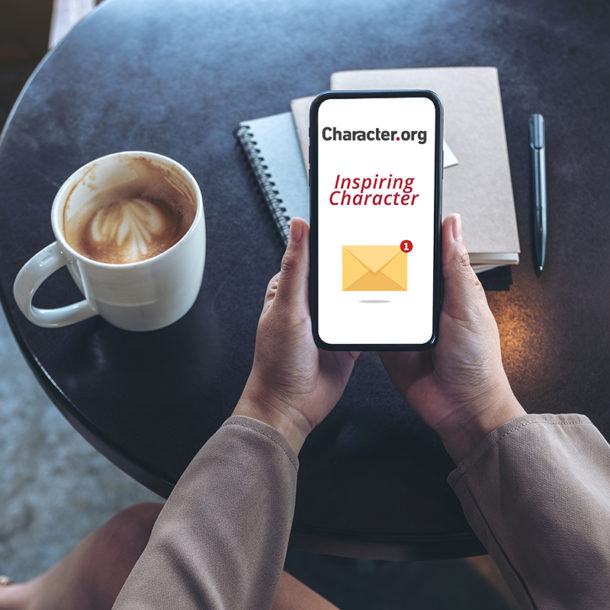By Terri Power, Principal at St. Cyril of Alexandria School
In his article, “Do Educators Exaggerate the Harm of Extrinsic Motivation?,” Dr. Jacques Benninga makes a strong case for looking at Principle 7 (the school fosters students’ self-motivation) from more of a developmental perspective. He suggests that, while it’s fine to strive for intrinsic or “inner” motivation as a long-term goal, elementary school children are not ready for an incentive-free approach. According to Benninga, “Educators and parents intuitively know that offering incentives to children to engage in activities that may not initially appeal to them is often effective in getting them involved and can positively influence subsequent behaviors.” He goes on, “Such experiences [incentive-based] are consistent with the research on children’s moral thinking over time. Extrinsic motivations are often effective, efficient, and produce positive results.”
At St. Cyril of Alexandria School, our schoolwide experience aligns very closely with the case made by Dr. Benninga. For our PBIS (Positive Behavior Intervention & Supports) initiative we incorporate the Six Pillars of Character (Trustworthiness, Respect, Responsibility, Fairness, Caring, and Citizenship) but focus particularly on three behavioral categories – Respectful, Responsible, and being Safe. We list four behavioral expectations for each of these categories, and we teach, model, and practice them with grade-appropriate lesson plans. Additionally, we have our PBIS matrices posted throughout our school building so that our students have clear and consistent reminders of our expectations. The reward system we use are “TRRFCC Tickets” (TRRFCC being an acronym for the Six Pillars). Students are able to earn tickets for displaying good character and, after collecting a designated number of tickets, turn them in for a small prize or reward. At other times, for example during the recent COVID-19 lockdown when all instruction was virtual, the reward (extrinsic motivation) came in the form of online “shout outs” and “showcasing” students who have demonstrated different character traits.
Have these extrinsic incentives been effective in motivating our students to “live out” the character traits our school is promoting? Yes, there’s no doubt that they’ve been effective. The small rewards and public acknowledgements motivate our students to want to be “TRRFCC” and honest. Students appreciate the recognition, and it seems to spur them on in a positive way. But the good news is that it doesn’t seem to stop there. As time goes on, our students have become very caring, loving, and generous with each other, and – in a sense – motivate each other on a peer to peer basis. For example, we’ve seen this with our virtual learning. Technology can be tough, but students have really stepped up and helped other students with ideas and solutions to problems. In fact, some of the students have even been helpful “problem solvers” for our teachers.
One of the big benefits of PBIS is that it seems to meet kids where they are at; it recognizes that young people, especially in the early elementary years, enjoy an external reward, and this reinforces their good efforts. That said, as students get older at St. Cyril, we’ve seen them becoming less focused on rewards and more intrinsically motivated. Naturally, this is our goal – to see our students do the right thing because it’s the right thing. It’s neat – we’ve seen our older students begin to mentor our younger students. The older students use character development lessons that they’ve internalized and refer to different character traits. At the same time, we’ve seen students stand up to other students who have taken things that don’t belong to them.
Located just outside West Philadelphia, our school is comprised of almost 100% minority students. Some of our students come from homes and families with very few resources, yet they appreciate a school environment that really reinforces good character and a culture of genuine respect and dignity. Just two weeks ago I was organizing a cleanup day on a Saturday to work on the property to clean up trash, weeding, and beautify the property. I opened it up to 7th and 8th graders (the oldest students in our school). One student asked, “Do we get extra credit?” I reminded him that this project was not about an immediate reward, but rather about being good stewards of our school and the earth we live on, and that this involved a much bigger, long-term benefit. I argued that this was a sort of long-term “extra credit.” The students chuckled, and another student added, “…we need to be humble, and do what needs to be done. It is our role to be respectful and responsible citizens and take care of our community.” That to me is character education in real life.





